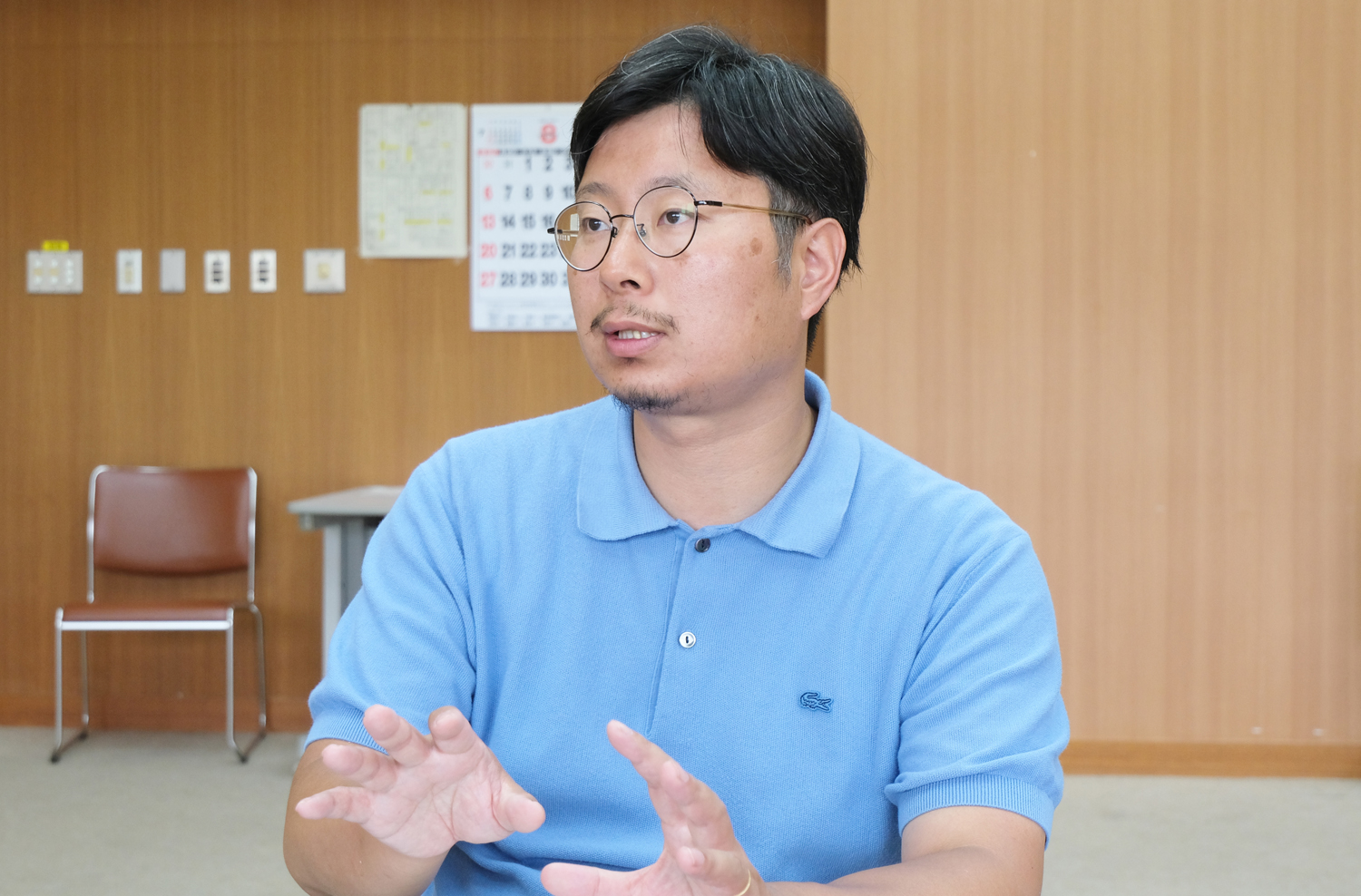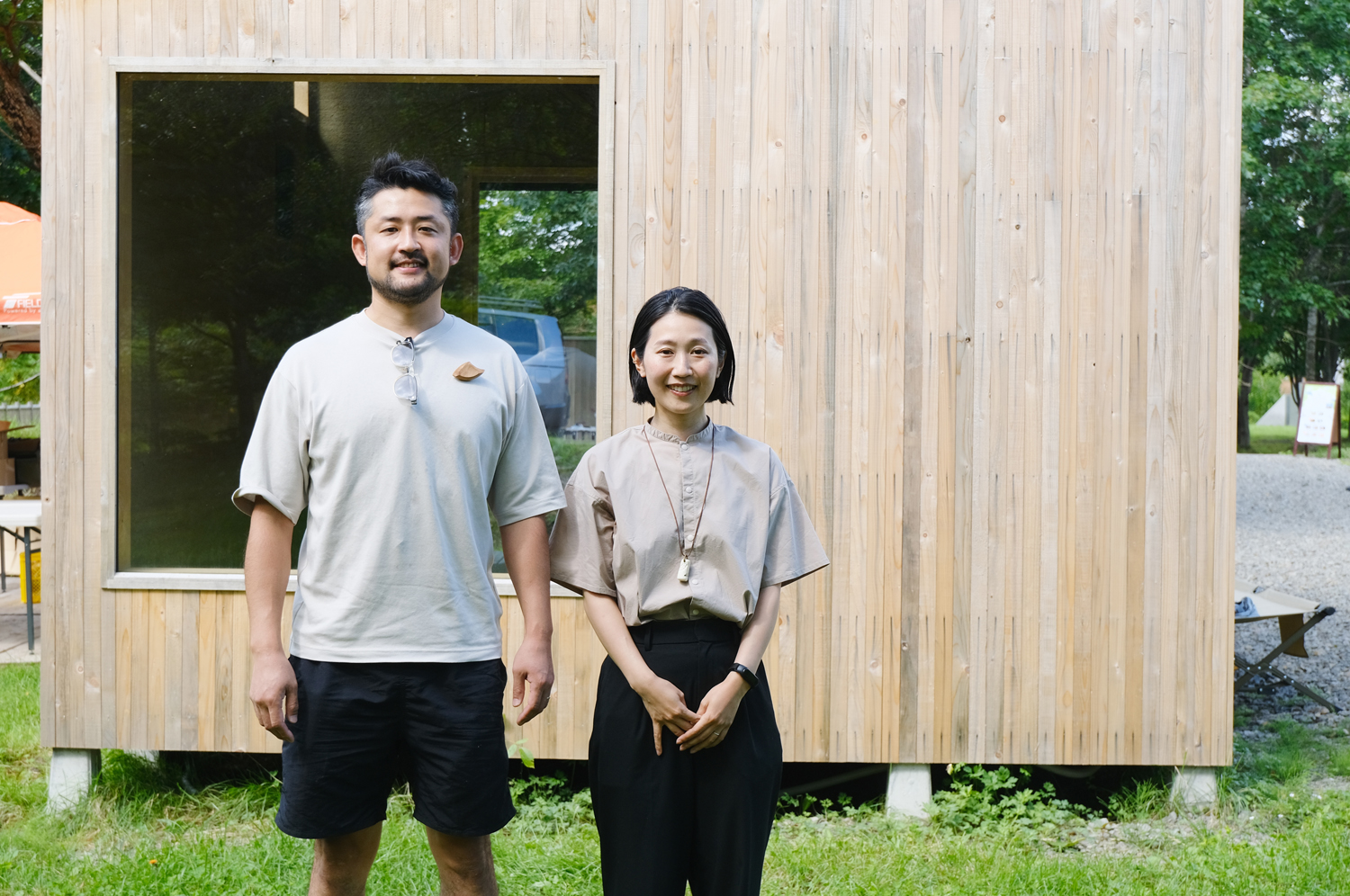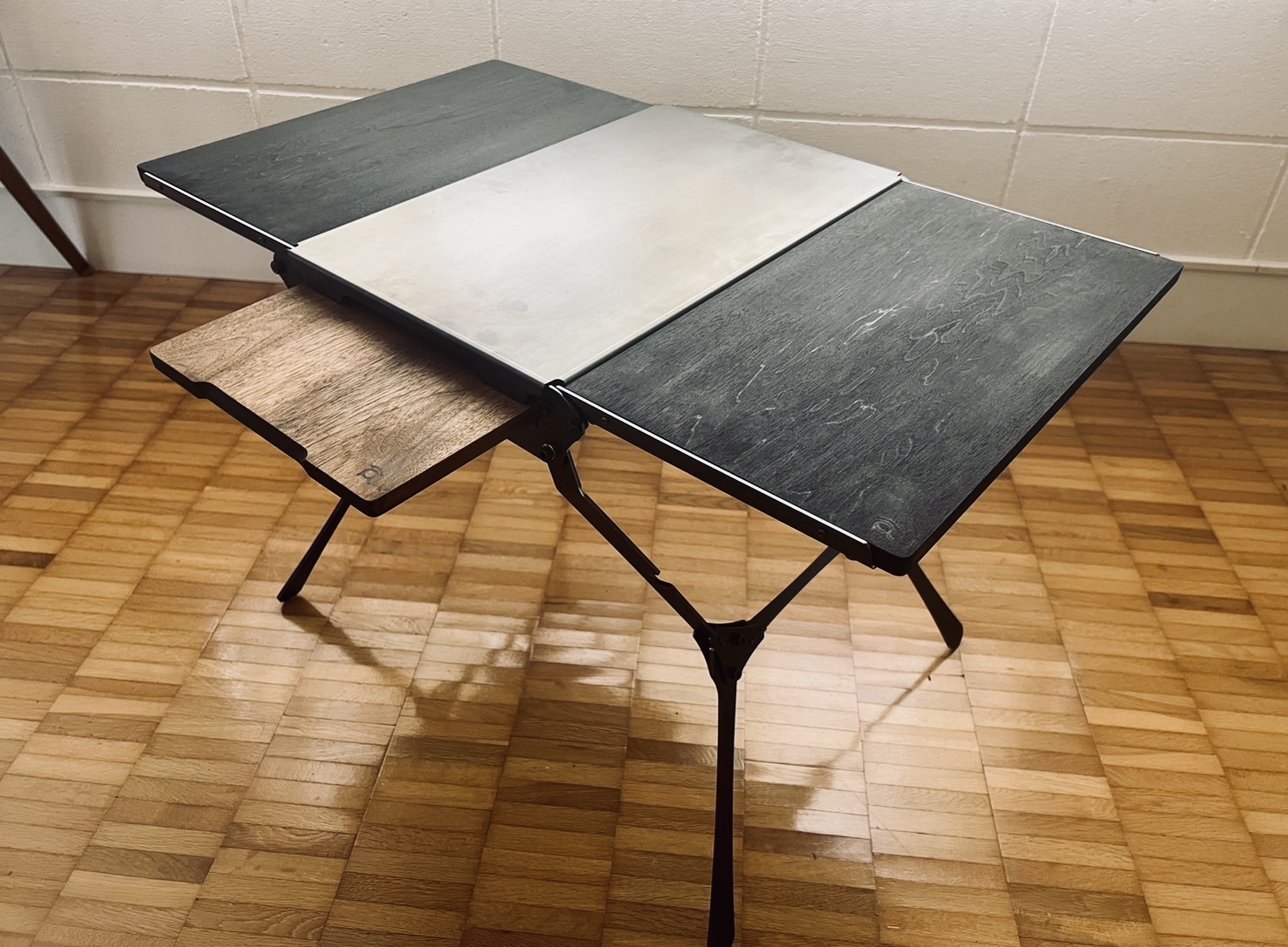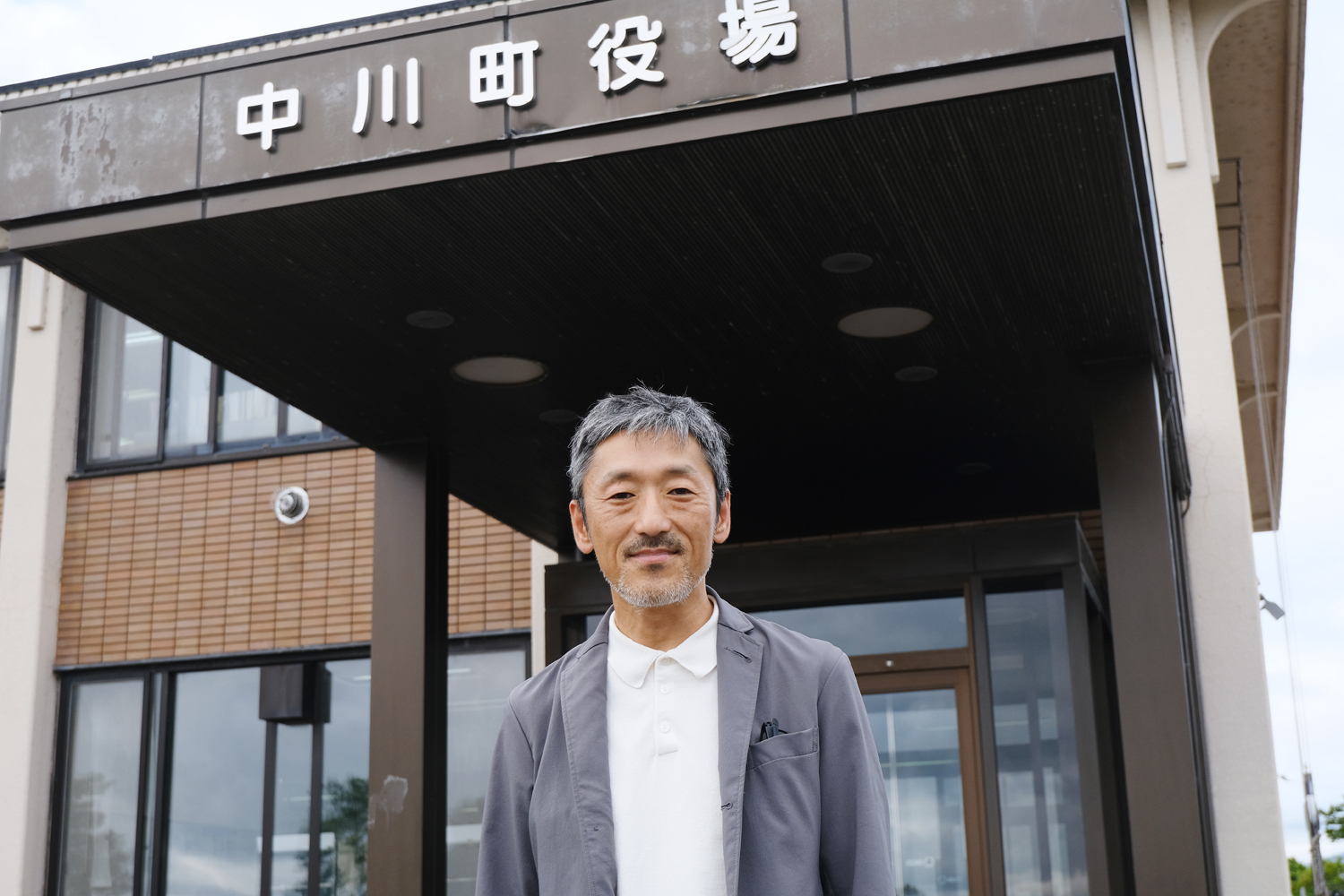
Satellite space in Setagaya, Tokyo (courtesy of Nakagawa Town)

Satellite space in Setagaya, Tokyo (courtesy of Nakagawa Town)
Even if you develop compelling products and tourism programs, they will not lead to sales or attract visitors unless many people know about them.
Nakagawa in northern Hokkaido is a small town with a population of about 1,300 that stretches long and narrow along the Teshio River.
The town faces many challenges, such as the lack of a high school in the town, which has caused mothers and children to move to Asahikawa for their children's education while the father stays home, as well as the outflow of elderly residents to urban areas with excellent medical facilities, the lack of work opportunities for young women, the high dependence on public housing, and the lack of housing to accommodate newcomers.
"We established a regional trading company with the aim of comprehensively resolving issues such as immigration promotion, attracting tourism, and promoting manufacturing," explains Takahashi Naoki of the Nakagawa Town Industrial Promotion Division's Industrial Promotion Office.
“A regional trading company was conceived as a semi-public/semi-private operation with the Regional Development Promotion Public Corporation, a third sector, as the main body. The best approach would have been for the town hall to provide back-up support and for the private sector to handle the work, but the town hall decided to take on some of the risk and let the private sector earn the money.”

Takahashi Naoki
Nakagawa Regional Development Promotion Public Corporation, which was selected for the project, is a third-sector company that is entrusted with the designated management of the town's hot spring accommodation facilities. In addition to the Hot Springs Management Division, which is responsible for existing operations, the Public Support Division and the Business Promotion Division were newly established and expanded, and positioned as the leaders of regional development.
The newly established Public Support Division is responsible for initiatives such as developing local products and town promotion, and within the division, a Tourism Promotion Group has been established to handle the planning and marketing of tourism programs.
Meanwhile, two divisions were established in the Business Promotion Division. These are the Michi-no-Eki Roadside Rest Area Support Group, which supports the operation of Michi-no-Eki Roadside Rest Area Nakagawa, and the Satellite Operation Group, which manages the satellite space located in Setagaya, Tokyo.
Why does Nakagawa have a store called Nakagawa no Nakagawa in Setagaya, Tokyo?
“We opened a satellite space in 2016 as a test marketing venue for the Tokyo metropolitan area, but it was not performing well due to COVID-19.”
We have also established ties with Nihon University's College of Humanities and Sciences, and in 2021, we signed a comprehensive agreement on mutual cooperation and collaboration between the College and Nakagawa Town. When the Nakagawa no Nakagawa Nihon University location was opened on campus, sales of soft-serve ice cream and beef bowls made with ingredients from Nakagawa started selling extremely well.
The biggest challenge in converting an existing public corporation into a regional trading company was securing the necessary people to carry out the work. No matter what the project, it would be difficult to do it without people.
That is why Local Vitalization Cooperators were asked to help out.
In addition to the appointment type in which Local Vitalization Cooperators are appointed as employees for the fiscal year, Nakagawa has created an entrepreneurial type in which Local Vitalization Cooperators can start their own business under a consignment contract without an employment contract, and a problem-solving type in which they work as regular employees of the regional trading company, creating an environment in which people with an entrepreneurial mindset can work freely.
In addition to the eight active Cooperators, nine former Local Vitalization Cooperators who have already completed their three-year term of service have settled in Nakagawa and are developing businesses that make use of their skills.
Fukuda Hayato, representative of Rawwood, who works as a woodworker, is one of them.
After studying architecture and design at a university in Kyoto, he went on to graduate school in England and also lived in Germany. After returning to Japan, he studied woodworking techniques in Gifu Prefecture for two years before coming to Nakagawa-cho, saying, "I want to work in a place close to the forestry industry."

Fukuda and his wife Mei
Currently, he produces furniture and woodwork using lumber from Nakagawa. An outdoor table produced in collaboration with a fellow Local Vitalization Cooperator who specializes in outdoor product development has become popular.
Fukuda says, “We left the sales to the regional trading company, allowing us to concentrate on production. The staff at the trading company provides feedback such as what the customers think of the products.”

Outdoor Table ORIGAMI (Nakagawa Edition) (Courtesy of Rawwood)
Fukuda also works as a lumber distribution coordinator on behalf of the town.
Fukuda says, “My job is to add value to the lumber by thinking of as many ways as possible to offer Hokkaido lumber to craft artists and furniture makers who want to use it.”
Hioki Tomoyuki, who plays a central role in the regional trading company's Tourism Promotion Group of the Public Support Division, is working on the creation of tourism content.

Hioki, a certified cycling guide
Hioki says, “The fascination of Nakagawa is that you can enjoy a variety of experiences in the mountains and rivers”
Nakagawa now has a variety of other private guides, such as canoe guides and fishing guides, and they are planning on adding these to their tourism lineup in the future.
Hioki says, “Experiences cannot be marketed externally, so we want people to visit Nakagawa and have a fun experience in the midst of nature.”
The regional trading company handles specialty products such as crafts utilizing local timber in bulk and market them outside the town. They also share unique tourism content to attract both domestic and international tourists.
The role of regional trading companies will grow even larger.
Takahashi says, “In forest management, there is the concept of adaptive management. This is similar to the method of thinking about what to do next in response to a certain reaction to a certain operation. It is important not to rush to conclusions, but to make sure that what we do today is the right thing to do.”
Takahashi, who used to be in charge of forest management at the town office, thinks of community development in terms of forest time.
Public Support Division, Nakagawa Regional Development Promotion Public Corporation 
Nakagawa Town Hall, Nakagawa 1337, Nakagawa-cho, Nakagawa-gun, Hokkaido, Japan
Tel.: 01656-8-7588
Website